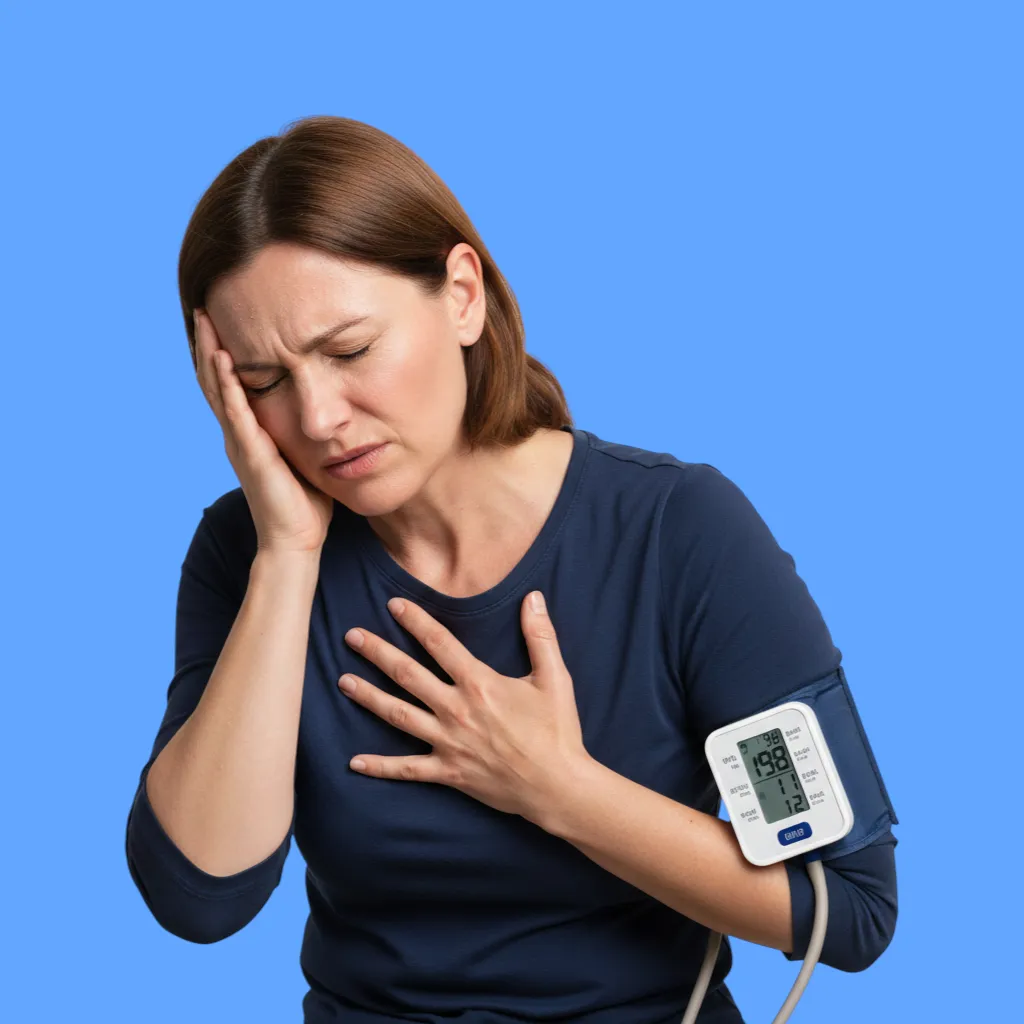What is high blood pressure?
High blood pressure is a chronic condition that occurs when the pressure inside the blood vessels is higher than normal levels. It is often referred to as the silent killer because it may not show any clear symptoms in its early stages.
Blood pressure is measured using two numbers systolic and diastolic. If the reading exceeds 140/90 mmHg on multiple occasions, the person is considered to have high blood pressure.
This condition is not limited to a specific age group it can affect children, adults, and the elderly. It is one of the major risk factors for heart disease, stroke, and dementia.
What are the causes of high blood pressure?
There are several common causes of high blood pressure, including:
- Aging
- Genetic factors
- Obesity and excess weight
- Consuming large amounts of salt or sodium
- Lack of physical activity
- Chronic stress and psychological pressure
- Smoking or excessive alcohol consumption
- Having chronic diseases such as diabetes or kidney disorders
What are the common symptoms of high blood pressure?

There are several symptoms that patients may experience, including:
- Persistent or sudden headaches
- Dizziness or feeling off balance
- Chest pain
- Shortness of breath
- Changes in vision
- Numbness or weakness in the hands or feet
- Difficulty speaking
When should you see a doctor?
It is recommended to consult a doctor immediately if any of the following occur:
- Sudden and persistent high blood pressure
- Symptoms such as chest pain or shortness of breath
- Noticeable swelling in the body or face
- Unusual severe headaches
- Changes in vision or hearing
- Feeling numbness or weakness in one limb, often appearing suddenly or gradually depending on nerve involvement
How is high blood pressure diagnosed?
The condition is diagnosed using several methods, including:
- Measuring blood pressure with a sphygmomanometer on multiple occasions
- Monitoring blood pressure at home for accurate readings
- Kidney function tests, such as urine albumin to creatinine ratio
- Using risk calculators to assess personal health risks based on age, gender, and other indicators
What are the treatment options for high blood pressure?
There are several ways to treat high blood pressure, including:
- Lifestyle changes such as reducing salt intake, exercising, and losing weight
- Taking antihypertensive medications as prescribed by a doctor
- Using modern medications like GLP-1 inhibitors for some obese patients
- Stress reduction through meditation or yoga
- Avoiding smoking and alcohol
Can high blood pressure be cured?
High blood pressure is not usually cured completely, but it can be effectively controlled through consistent treatment and lifestyle changes.
Some cases related to secondary causes may be cured if the underlying issue is treated, such as kidney problems or thyroid disorders.
What are the prevention tips for high blood pressure?
There are several tips to help prevent high blood pressure, including:
- Reducing sodium and salt intake
- Following a healthy diet such as the DASH diet
- Exercising regularly
- Maintaining a healthy weight
- Avoiding smoking and alcohol
- Managing stress and psychological pressure
- Regularly checking blood pressure
What are the possible complications of high blood pressure?
If left untreated, high blood pressure may lead to complications such as:
- Stroke
- Heart diseases like atrial fibrillation and heart failure
- Kidney failure
- Dementia and cognitive decline
- Vision problems or loss
Frequently asked questions about high blood pressure
Can young people get high blood pressure?
Yes, it can affect all age groups.
Is high blood pressure permanent?
Not always some cases can be managed or treated.
Can blood pressure be measured at home?
Yes, using home blood pressure monitors.
Does high blood pressure affect the brain?
Yes, it may increase the risk of dementia and stroke.